Yes, well, this is no surprise, really. I’d be pretty keen on directing a major potential competitor far away from the market I’m trying to corner, too. And if I could make some money on the deal, all the better. Unfortunately, the last “I” — for India — is no longer a sure thing on the IPI “Peace” Pipeline. The stabilizing effect that would have had would have made the deal at least a palatable trade-off for losing Iranian gas for Nabucco. Now I’ve seen some reports that the Iranian gas might end up in China after transiting Pakistan. If […]
Russia Archive
Free Newsletter
Ria Novosti reports that India has ruled out the Russian-manufactured Il-78 for its upcoming purchase of aerial tankers, due to concerns over spare parts and after-sales service for a fleet purchased six years ago. That made me think of this Richard Weitz column from the WPR archives, back in February, describing the challenges facing the Russian defense industry. The related decline of the Indo-Russian defense relationship at the very moment that India will begin to play a more prominent regional security role is one of the more important defense industry trends going relatively unnoticed in the mainstream press these days, […]
The Bremer model seems like an odd choice for a country fending off social unrest and economic crisis. For Russia, the professionalization of the military came five years too late, or else the global downturn came five years too early. Either way, instead of transitioning officers into a boom economy, they’re left with unkept promises and Soviet-style phantom waiting lists. Not the kind of guys I’d want idle and angry these days.
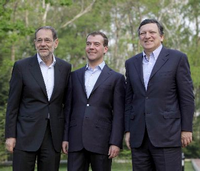
Two frustrating EU summit meetings last week, with China and Russia, served to illustrate the EU’s well-known difficulties in conducting foreign policy under its presently awkward institutional structure. These problems have propelled efforts to adopt the Lisbon Treaty, which will restructure how the EU manages its foreign policy representation and decision-making. Even with more coherent foreign policy machinery, however, the EU would still find it difficult to achieve its objectives in the case of difficult dialogue partners such as China and Russia. The May 20 meeting in Prague with a visiting Chinese delegation marked the 11th EU-China summit since 1998. […]
Couldn’t help but chuckle over this, from an EU Observer wrap up of the EU-Russia summit. Apparently, prior to the summit, Czech President Vaclav Klaus got quoted as saying that, as a “big, strong and ambitious country,” Russia deserved more attention than, say, Estonia and Lithuania. To which, in addition to summoning the Czech ambassador, Estonian President Toomas Hendrik Ilves replied: I amsurprised that such a regrettable phrase, which divides Europeancountries into important and unimportant ones, were expressed by aCzech. Translation from the Diplospeak: Who you calling a twerp, twerp?
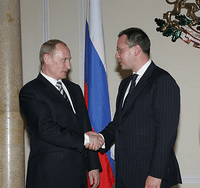
On May 8, the Czech Republic hosted a long-awaited Nabucco Summit under the auspices of its European Union (EU) presidency. Notably, the meeting convened just as the Bulgarian government finalized its participation in Russia’s competing South Stream pipeline. A little-noticed element of the negotiations in Moscow, however, was Bulgaria’s effort to link its participation in South Stream with Russian financing for a domestic nuclear power program. Pipeline politics may generate headlines, but Bulgarian officials expect nuclear power to generate most of their future electricity. And Bulgaria’s South Stream agreement demonstrates the perverse incentives which arise when EU energy security and […]
I’d like to say that I realized today would be the Federal Republic’s 60th anniversary when we scheduled this week’s feature issue on Germany six weeks ago. But truth is, I didn’t. I’m fairly certain Hampton did, though. Either way, it’s a good excuse to plug the issue again, because it’s a great collection of articles on a “quiet” subject that’s worthy of more attention. Another good excuse to plug the issue is this Al Jazeera piece about Dmitry Medvedev calling out the EU on its Eastern Partnership at the EU-Russia summit meeting yesterday. The Eastern Partnership, as Max Bergmann […]
According to the EU Observer, Gazprom’s fourth-quarter profits in 2008 dropped 84 percent, to €811 million. That means a decline of €4.2 billion. Ouch. What’s more, Gazprom is limping into the lean years carrying a whopping €30 billion in debt. I imagine all the windfalls from the fat years went straight into Russia’s reserve fund, but Moscow has been burning through that to prop up the ruble and finance its budget deficit. According to Russian Finance Minister Alexei Kudrin (via Robert Amsterdam), the fund will be “practically exhausted” in 2010. In mid-April, Kudrin suggested that Russia might turn to foreign […]
In case you haven’t noticed, the latest WPR Feature Issue just went live. It’s a multifaceted look at, Germany, the great power that somehow isn’t. I’ve got a hunch this is going to be one of those timely features, not necessarily in media cycle as measured by days or months, but in historical cycles as measured in years and decades. For a variety of historical and political reasons, many of them clear and others less obvious, Germany has carved out a unique place for itself in the international arena, emphasizing non-militarism and multilateralism. But with the very multilateral order on […]
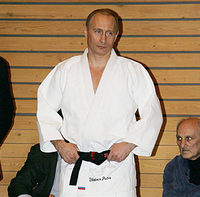
During a three-day visit to Japan last week, Russian Prime Minister Vladimir Putin pushed commercial deals and received an honorary degree from Tokyo University for his efforts to improve Russian-Japanese ties (as well as for his knowledge of judo, in which he holds a black belt). But as expected, the Russian and Japanese governments made little progress in resolving their territorial dispute over four islands that Russia seized from Japan at the end of World War II. The dispute over the islands — the Russians call them the Southern Kurils, while the Japanese refer to them as their Northern Territories […]
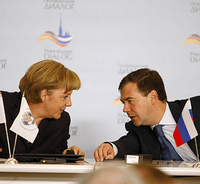
Germany’s policy of engagement and partnership with Russia is rooted in the German experience within Europe. If economic interdependence and integration could transform Germany after both World War II and the Cold War, so German thinking goes, then it might also transform Russia. Nevertheless, nearly 20 years after the end of the Cold War, Germany’s efforts — as well as those of Europe and the U.S. — to transform and integrate Russia have failed. Over the past decade, Vladimir Putin’s Russia has forcefully rejected integration with the West, predicating its desire for a return to great power status on expanded […]
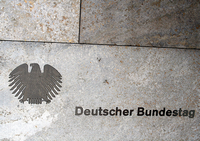
When the Berlin Wall fell 20 years ago, the event’s historic significance was immediately obvious. A divided Germany had been both the linchpin of the agreements sealed at Yalta and Potsdam in February and July of 1945, respectively, and the central fault line of the divided European continent they created. In what amounted to a recasting of some 300 years of European history, post-War European affairs were conducted under the umbrella of opposing blocs, and peace was based on nuclear deterrence. With the Wall gone, the Cold War political order was swept away. Less than one year later, a reunified […]
There was a sense of “here we go again” last week, when the government of Georgian President Mikheil Saakashvili claimed to have suppressed an army mutiny fomented by Moscow, even as some 600 troops from several nations including the United States arrived in Tblisi for the start of a NATO-led exercise. Last August, the Georgian army began its ill-fated attack on the separatist region of South Ossetia a week after the end of a combined U.S.-Georgian exercise. Over 100 American military personnel were still in Georgia when the Russians counterattacked and swept across Georgia like a knife through butter. The […]
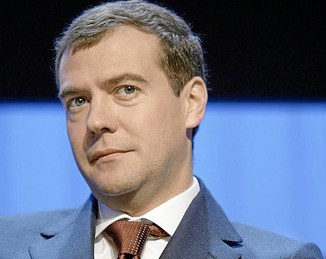
Russian President Dmitry Medvedev’s political legacy is inextricably linked to that of his predecessor, Vladimir Putin, in ways that go beyond mere political lineage. After then-President Putin endorsed Medvedev to succeed him in December 2007, Medvedev announced his intention, if elected, to name Putin as prime minister. With their slogan, “Together we will win,” the two reassured voters that they would continue the popular policies of Putin’s presidency. With the backing of Putin and his allies, and with the government restricting the activities of opposition candidates, Medvedev easily won the March 2008 presidential elections with more than 70 percent of […]
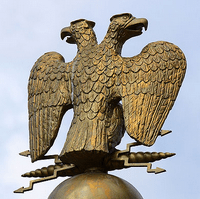
Have we really reached the end of American hegemony? For those who think so, the signs of America’s decline and the rise of emerging powers are everywhere. According to this line of argument, the world’s sole superpower succumbed to overstretch. U.S. failures in the “war on terror” revealed the limitations of American military power, while its role in provoking the global economic crisis revealed the shortcomings of American economic leadership. As a result, rising powers around the world feel suddenly emboldened by America’s visible weakness. Brazil’s president blames the worldwide recession on “white-skinned people with blue eyes,” and Russia and […]

President Barack Obama didn’t look into Dimitry Medvedev’s eyes and claim that he saw the Russian president’s soul at the G-20 summit in early April. But the meeting between the two leaders has potentially set the stage for a more pragmatic relationship between Washington and Moscow. Substantial policy differences still separate the two powers, but the dynamics of the U.S.-Russia relationship have shifted away from the mutual bitterness that arose out of the August 2008 war in the Caucasus. However, although energy is not a major part of the public discourse on U.S.-Russian relations, it is a latent factor that […]
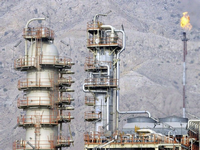
For years, analysts have argued that the Nabucco natural gas pipeline — a U.S.-backed effort to transport gas from the Caspian Sea to Europe via Turkey, thus bypassing Russia — needed to accept gas from Iran if it was to be economically viable. But Iranian involvement in the project, which is intended to reduce European energy dependence on Russian gas exports, has been anathema for U.S. policymakers: Washington’s efforts to thwart Iran’s ambitions have so far overridden its desire to thwart Russia’s. That may be changing. The White House has appointed a new envoy for Eurasian Energy, Richard Morningstar, who […]
